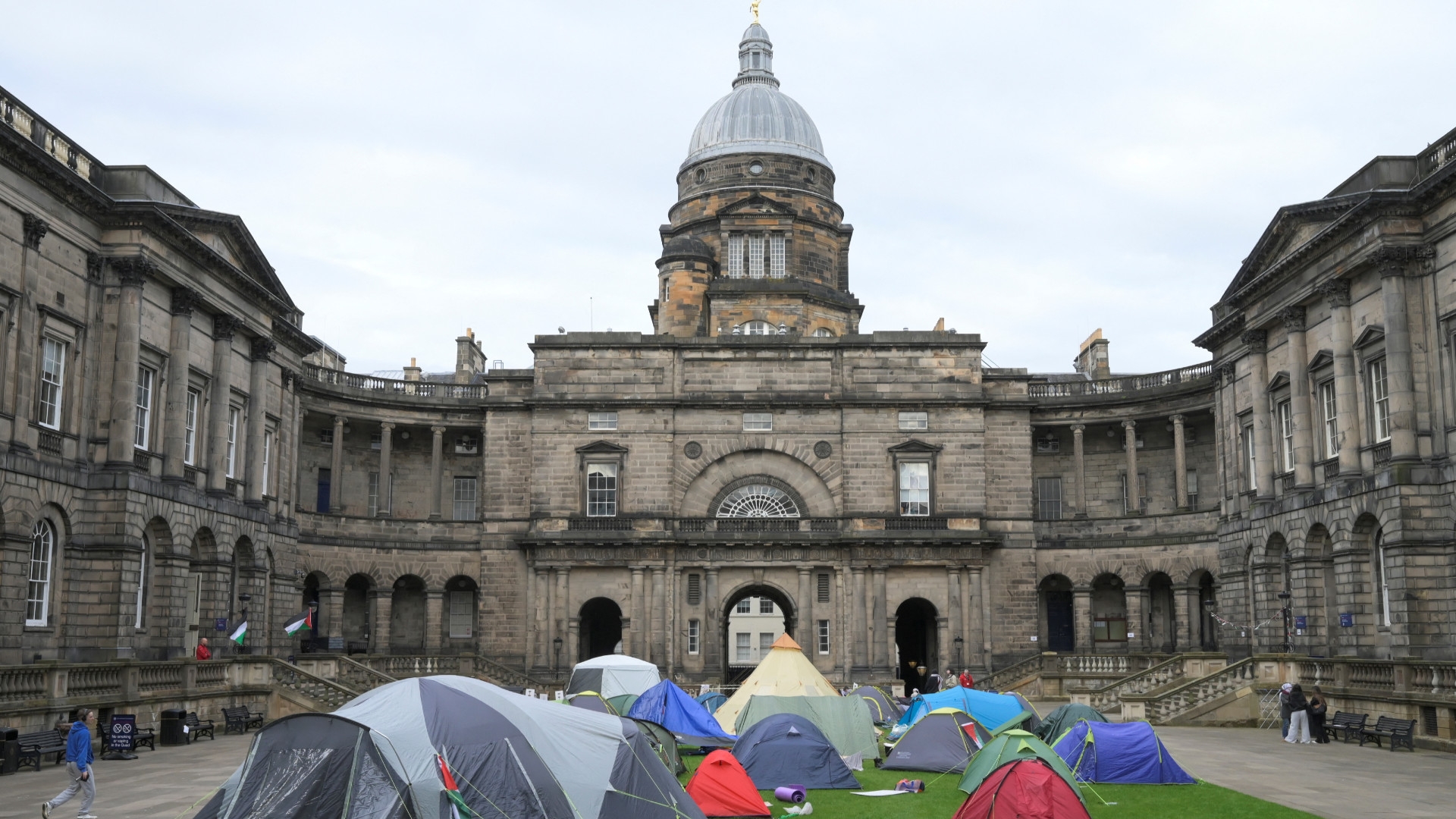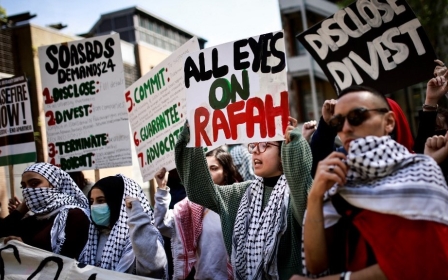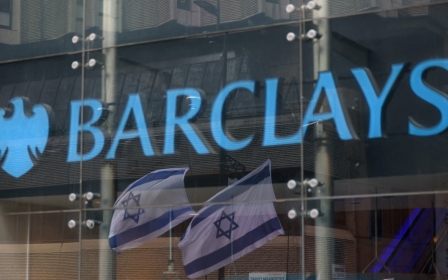Edinburgh book festival ends investment firm sponsorship over Israel ties

The Edinburgh International Book Festival (EIBF) has ended a 20-year partnership with asset management firm Baillie Gifford following pressure from activists over its ties to Israeli technology and military companies, as well as the fossil fuel industry.
In an announcement on Thursday evening, EIBF’s board cited security concerns and said that “threats of disruption” had “compromised” their ability to deliver a “safe and successful” event.
“The pressure on our team has simply become intolerable,” EIBF's chief executive, Jenny Niven, said.
The announcement follows the Hay Festival's decision last week to suspend its arrangements with Baillie Gifford after a series of cancellations by speakers and performers - including Charlotte Church, Nish Kumar, Labour Party peer Shami Chakrabarti and MP Dawn Butler - over the sponsorship.
In addition to the Hay Festival and EIBF, Baillie Gifford sponsors several other literary festivals, including the Cheltenham Literature Festival as well as the UK’s most prestigious nonfiction award, the Baillie Gifford prize.
New MEE newsletter: Jerusalem Dispatch
Sign up to get the latest insights and analysis on Israel-Palestine, alongside Turkey Unpacked and other MEE newsletters
According to Art Workers for Palestine Scotland, the Edinburgh-based firm has nearly £10bn ($12bn) invested in companies with ties to Israel's defence, technology and cybersecurity industries, including NVIDIA, Amazon and Alphabet.
This figure is more than double its reported investments in oil and gas companies.
In addition to its military ties, Baillie Gifford is also invested in Cemex, Cisco Systems and Booking Holdings, the parent company of Booking.com, which is involved in the maintenance and expansion of illegal Israeli settlements in occupied Palestine.
Authors call for divestment
Thursday's announcement came shortly after the campaign group Fossil Free Books (FFB) published a statement that garnered over 700 signatures from authors and publishing industry professionals, including Naomi Klein and Sally Rooney.
The signatories reiterated previous demands for the firm to divest from the fossil fuel industry and “from companies that profit from Israeli apartheid, occupation and genocide".
'Divestment is not abstract'
- Open letter signed by over 700 authors and publishers
“Divestment is not abstract,” the statement reads. “Until the firm agrees to divest, we call on all literary organisations, including festivals, to end their relationships with Baillie Gifford.”
It added that if the demands were not met, writers and performers would “withdraw their labour".
In August 2023, the firm’s ties with Israel and fossil fuel companies were amplified when climate activist Greta Thunberg refused to appear at the EIBF.
“It is imperative we point out the links between the companies Baillie Gifford invests in and what is happening in Gaza right now,” Megan Booth, a writer from Edinburgh and Fossil Free Books organiser, told the BBC.
“We would like to reiterate that Baillie Gifford has always been the main target of our campaign."
Nick Thomas, a partner with Baillie Gifford, said in a statement released by EIBF that the assertion that the firm has significant money in occupied Palestinian territories was "offensively misleading", pointing to its investments in multinational technology companies like Amazon, NVIDIA and Meta.
"Demanding divestment from these global companies, used by millions of people around the world, is unreasonable and serves no purpose," Thomas said.
"Much as it would be unreasonable to demand authors boycott Instagram or stop selling books on Amazon."
He also noted that only two percent of Baillie Gifford's clients' funds are invested in companies with some business related to fossil fuels.
The festival is scheduled to be held from 10-15 August.
Middle East Eye delivers independent and unrivalled coverage and analysis of the Middle East, North Africa and beyond. To learn more about republishing this content and the associated fees, please fill out this form. More about MEE can be found here.




